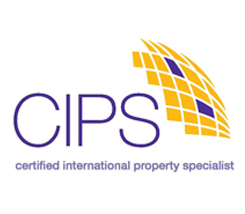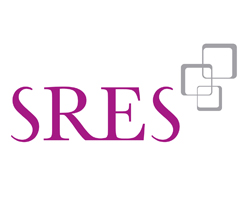Is it worthwhile to use TripAdvisor?
TripAdvisor® is a website that “provides recommendations for hotels, resorts, inns, vacations, travel packages, vacation packages, travel guides and lots more” worldwide. They use the opinions and experiences of travelers to calculate ratings. Depending on who is writing the review, and what their motives are, sometimes the ratings can be erroneous and provide inaccurate results (either for better or worse).
Susan Breslow Sardone is the Honeymoon and Romantic Travel Guide for About.com and she shares some useful information on how to use TripAdvisor.
The Bottom Line
Trip Advisor is a travel opinion aggregator. Recently some hotels — especially those with less-than-glowing reviews — have tried inducing guests with discounts, free nights, gifts, and other bribes to post positive reviews that counteract negative statements. Some hotels also encourage staff members to post bogus positive reviews. While Trip Advisor aims to monitor and remove fakes, there’s no way the service can totally eliminate them.
Pros
- Trip Advisor is a unique, timely, populist travel resource
- Trip Advisor enables a variety of opinions to be voiced
- Trip Advisor’s Quick Check is a well-integrated search engine for online booking
Cons
- Widely diverse opinions (“Loved it!”…”Hated it!”) make it hard to objectively evaluate a place
- Dissatisfied guests use Trip Advisor as a venue to broadcast bad experiences
- Trip Advisor has many poorly written trip reviews
- Bogus positive reviews posted along with honest ones can confuse users
Description
- Some 490,000 hotels and attractions and 22,000 cities are in the Trip Advisor database.
- Trip Advisor’s Hotel Popularity Index provides a ranking of the top hotels in a city.
- Trip Advisor also links to travel guidebooks and Web articles.
- Got a question? Nearly 2/3 of Trip Advisor forum posts get an answer within 24 hours.
- Candid photos by Trip Advisor members provide fresh perspectives.
- Free Trip Advisor emails include Trip Watch, a personalized newsletter, and Weekend Getaway Guide.
- Smart Deals on Trip Advisor indicate highly rated hotels with good prices.
Guide Review – Trip Advisor
Trip Advisor features some 25 million reviews, including both rants and raves about destinations, hotels, attractions, and restaurants.
If you’re like most travelers, when planning a trip you appreciate hearing or reading others’ opinions before you choose a place. Yet a surfeit of (often conflicting) voices can create cacophony and confusion. I recently received an email that said:
I am so happy I came across your info on About.com. I am trying to plan a destination wedding, but get so discouraged after reading negative reviews on Trip Advisor about every place I look in to. (Except for Four Seasons and the Ritz, which are too expensive for me).
Here’s my advice to get the most from Trip Advisor:
- Take what you read on Trip Advisor with a grain of salt. If you see a scathing one-star review but no other writers complain about the same problem(s), it’s safe to write it off as an isolated incident.
- However, if you encounter the same complaint about a hotel repeatedly on Trip Advisor (e.g. “terrible service,” “dirty bathroom”), I’d trust it.
- Conversely, a glowing, this-place-couldn’t-be-better report on Trip Advisor — especially when it’s surrounded by others’ complaints — could have been written by a ringer.
- Use Trip Advisor as one — but not your only — resource for travel information. You can get a balanced picture by speaking with trusted friends and acquaintances, talking to a travel agent, and visiting other travel sites in addition to a property’s own Web site.
Original Source: Should You Trust Trip Advisor at About.com
This entry was posted in
Uncategorized. Bookmark the
permalink.
Is it worthwhile to use TripAdvisor?
TripAdvisor® is a website that “provides recommendations for hotels, resorts, inns, vacations, travel packages, vacation packages, travel guides and lots more” worldwide. They use the opinions and experiences of travelers to calculate ratings. Depending on who is writing the review, and what their motives are, sometimes the ratings can be erroneous and provide inaccurate results (either for better or worse).
Susan Breslow Sardone is the Honeymoon and Romantic Travel Guide for About.com and she shares some useful information on how to use TripAdvisor.
The Bottom Line
Trip Advisor is a travel opinion aggregator. Recently some hotels — especially those with less-than-glowing reviews — have tried inducing guests with discounts, free nights, gifts, and other bribes to post positive reviews that counteract negative statements. Some hotels also encourage staff members to post bogus positive reviews. While Trip Advisor aims to monitor and remove fakes, there’s no way the service can totally eliminate them.
Pros
- Trip Advisor is a unique, timely, populist travel resource
- Trip Advisor enables a variety of opinions to be voiced
- Trip Advisor’s Quick Check is a well-integrated search engine for online booking
Cons
- Widely diverse opinions (“Loved it!”…”Hated it!”) make it hard to objectively evaluate a place
- Dissatisfied guests use Trip Advisor as a venue to broadcast bad experiences
- Trip Advisor has many poorly written trip reviews
- Bogus positive reviews posted along with honest ones can confuse users
Description
- Some 490,000 hotels and attractions and 22,000 cities are in the Trip Advisor database.
- Trip Advisor’s Hotel Popularity Index provides a ranking of the top hotels in a city.
- Trip Advisor also links to travel guidebooks and Web articles.
- Got a question? Nearly 2/3 of Trip Advisor forum posts get an answer within 24 hours.
- Candid photos by Trip Advisor members provide fresh perspectives.
- Free Trip Advisor emails include Trip Watch, a personalized newsletter, and Weekend Getaway Guide.
- Smart Deals on Trip Advisor indicate highly rated hotels with good prices.
Guide Review – Trip Advisor
Trip Advisor features some 25 million reviews, including both rants and raves about destinations, hotels, attractions, and restaurants.
If you’re like most travelers, when planning a trip you appreciate hearing or reading others’ opinions before you choose a place. Yet a surfeit of (often conflicting) voices can create cacophony and confusion. I recently received an email that said:
I am so happy I came across your info on About.com. I am trying to plan a destination wedding, but get so discouraged after reading negative reviews on Trip Advisor about every place I look in to. (Except for Four Seasons and the Ritz, which are too expensive for me).
Here’s my advice to get the most from Trip Advisor:
- Take what you read on Trip Advisor with a grain of salt. If you see a scathing one-star review but no other writers complain about the same problem(s), it’s safe to write it off as an isolated incident.
- However, if you encounter the same complaint about a hotel repeatedly on Trip Advisor (e.g. “terrible service,” “dirty bathroom”), I’d trust it.
- Conversely, a glowing, this-place-couldn’t-be-better report on Trip Advisor — especially when it’s surrounded by others’ complaints — could have been written by a ringer.
- Use Trip Advisor as one — but not your only — resource for travel information. You can get a balanced picture by speaking with trusted friends and acquaintances, talking to a travel agent, and visiting other travel sites in addition to a property’s own Web site.
Original Source: Should You Trust Trip Advisor at About.com
This entry was posted in
Uncategorized. Bookmark the
permalink.





